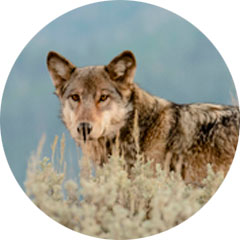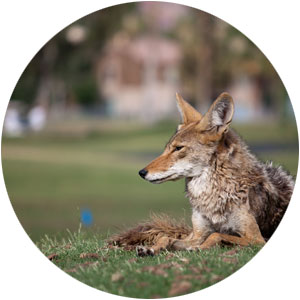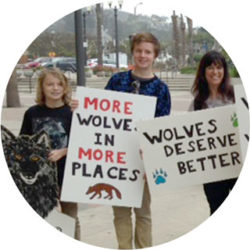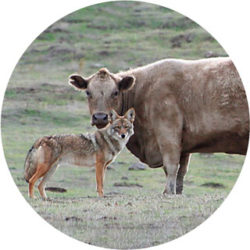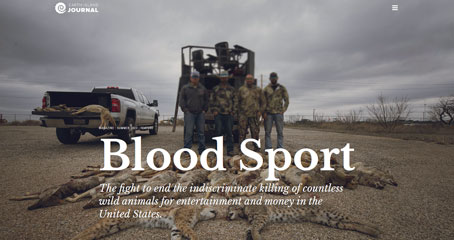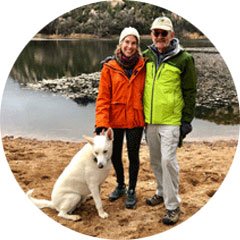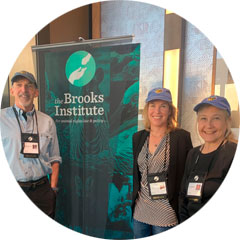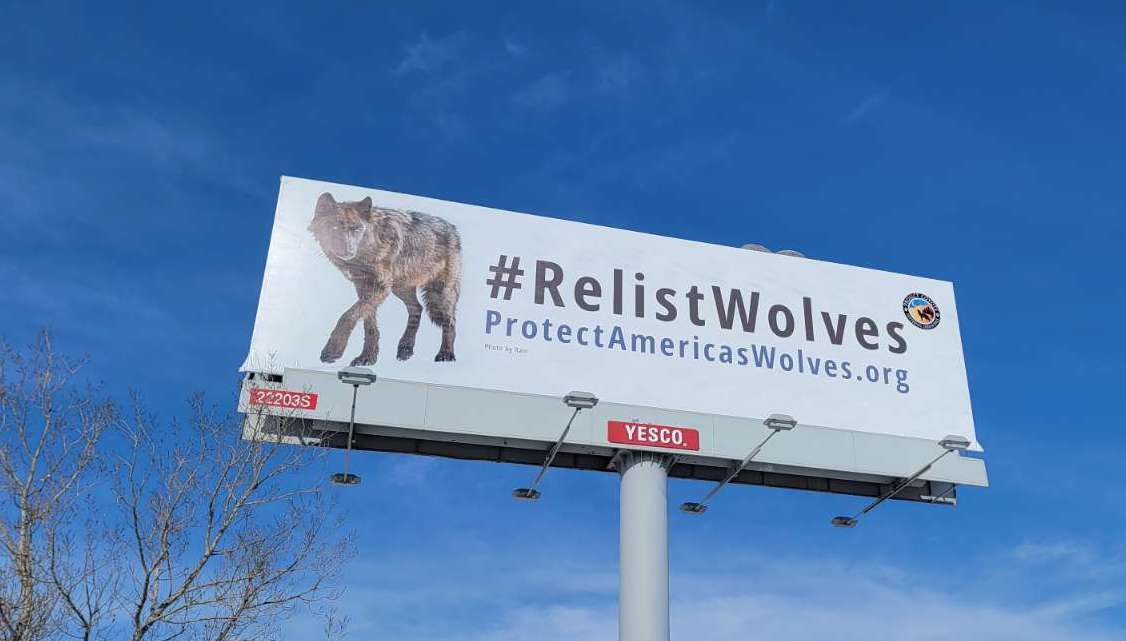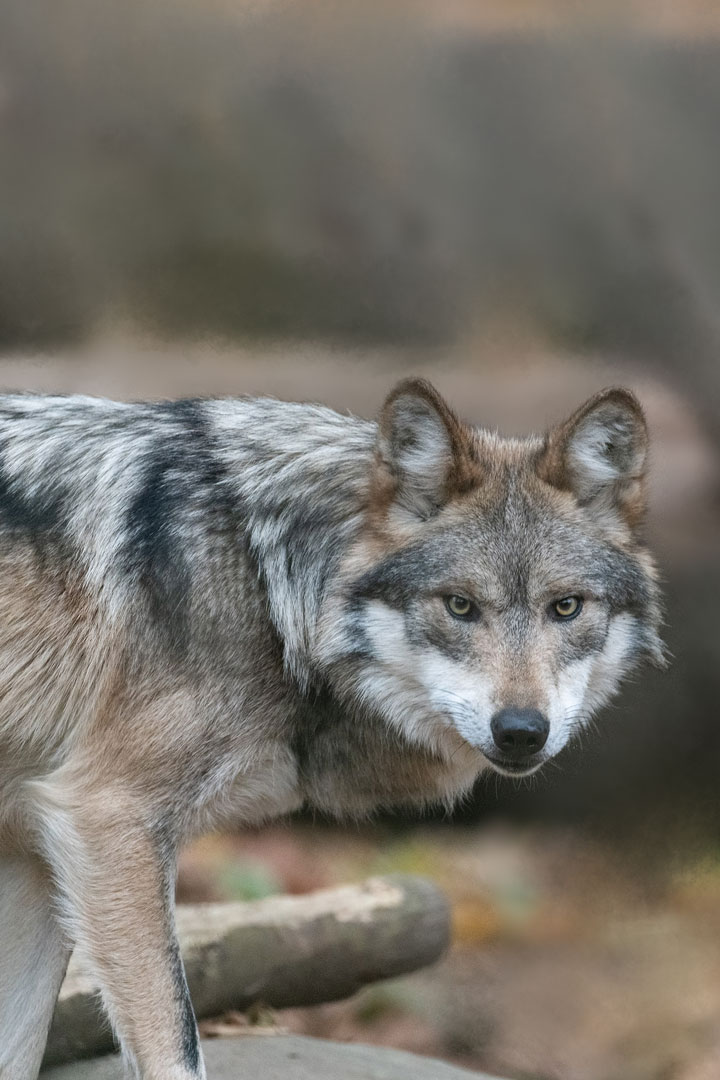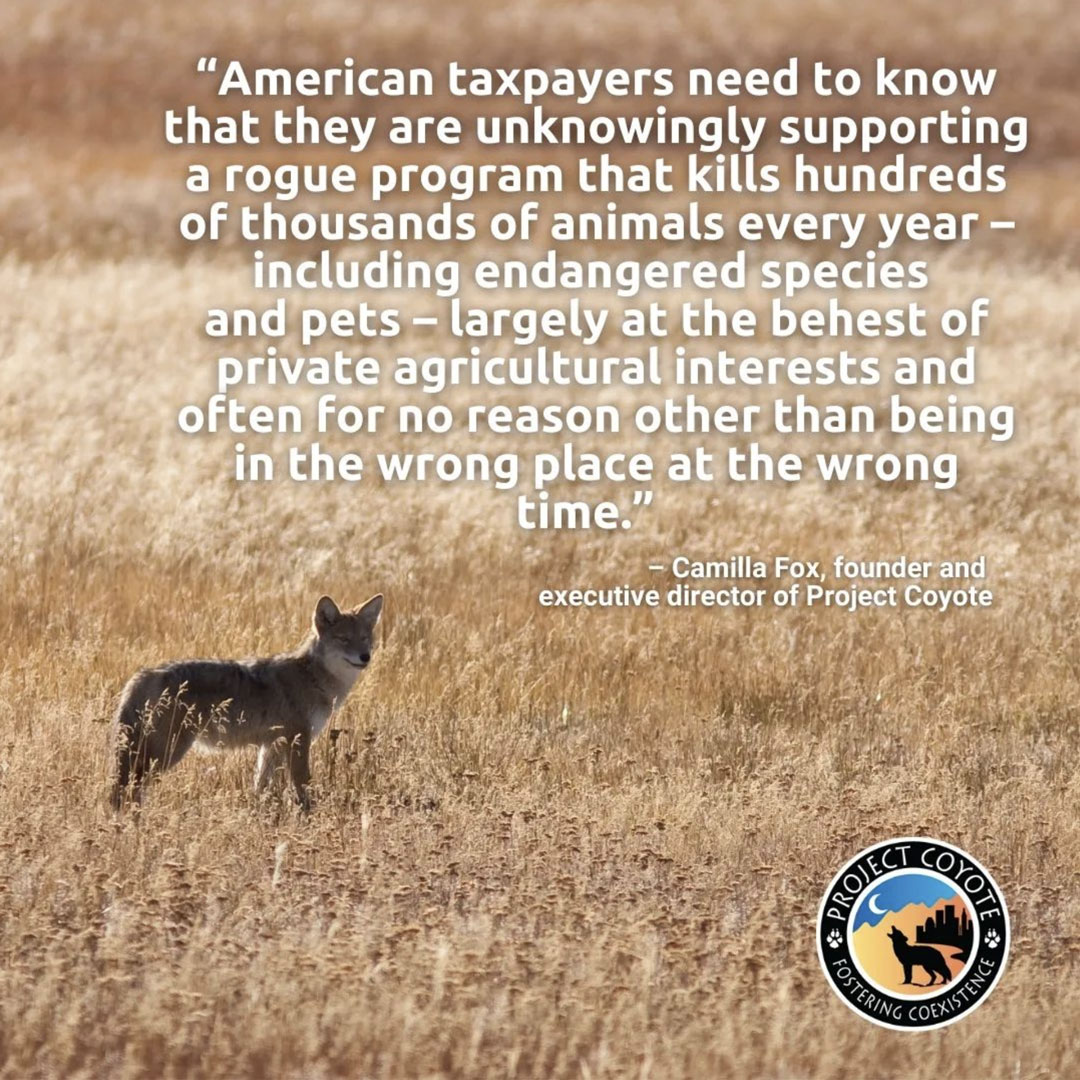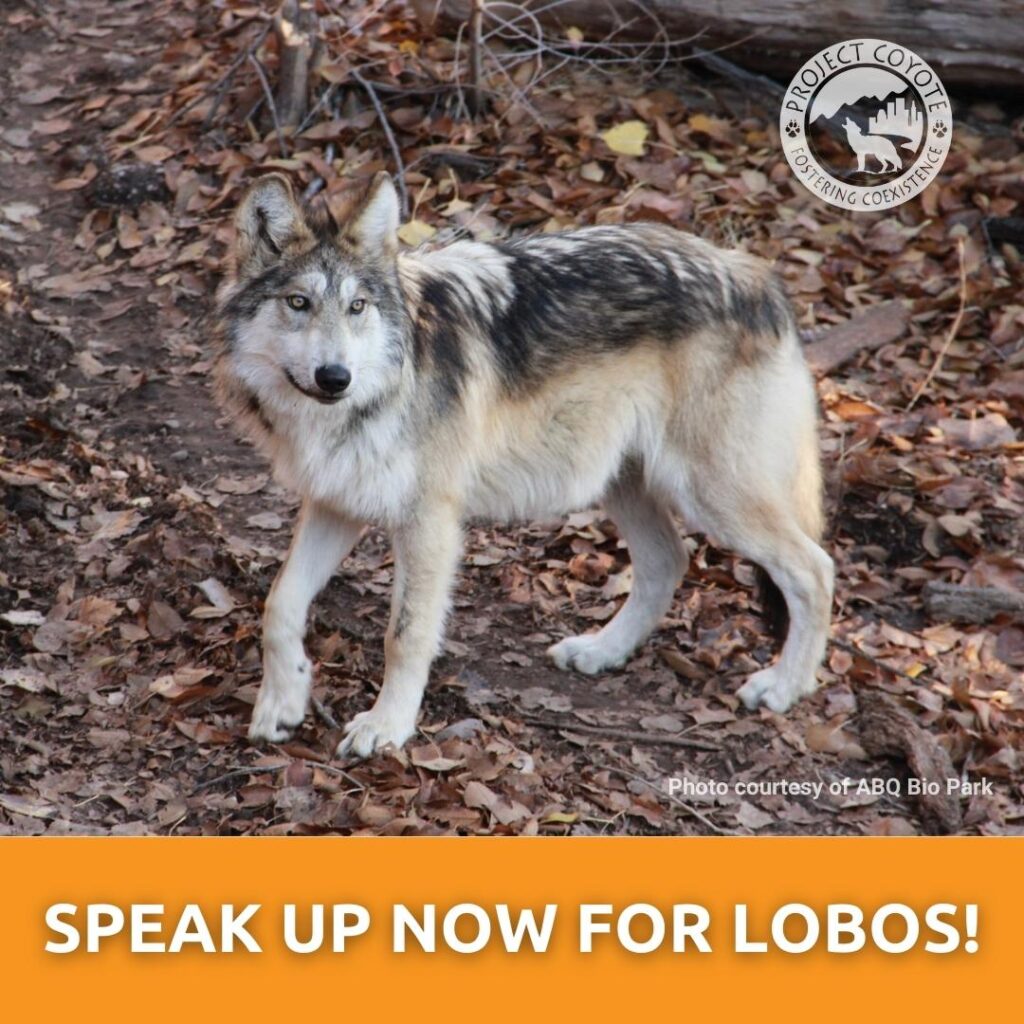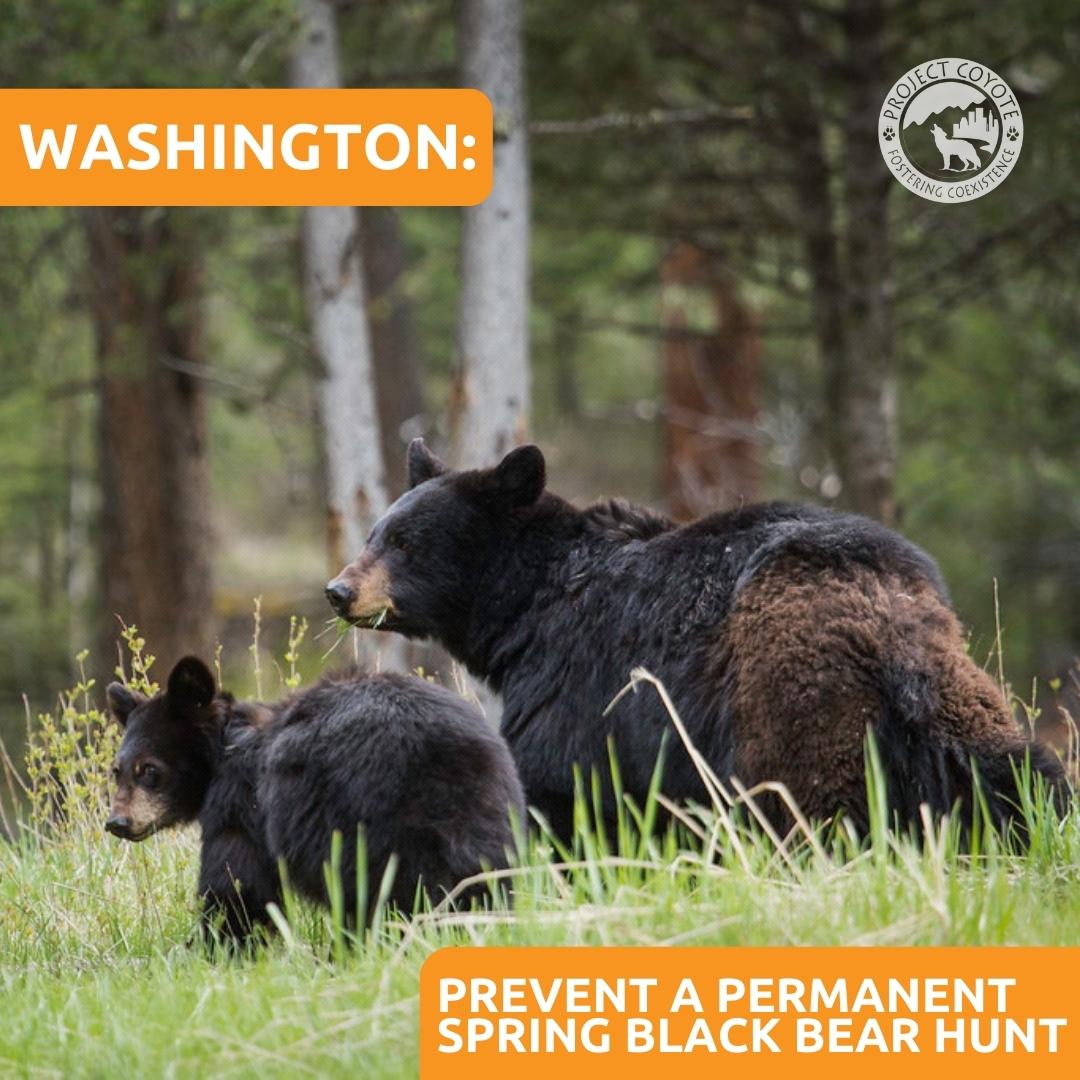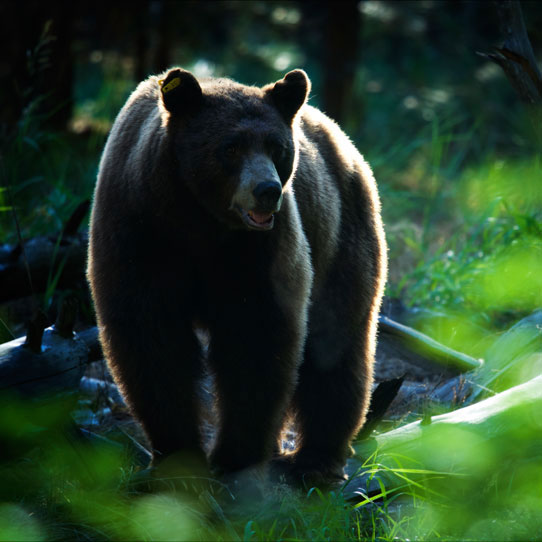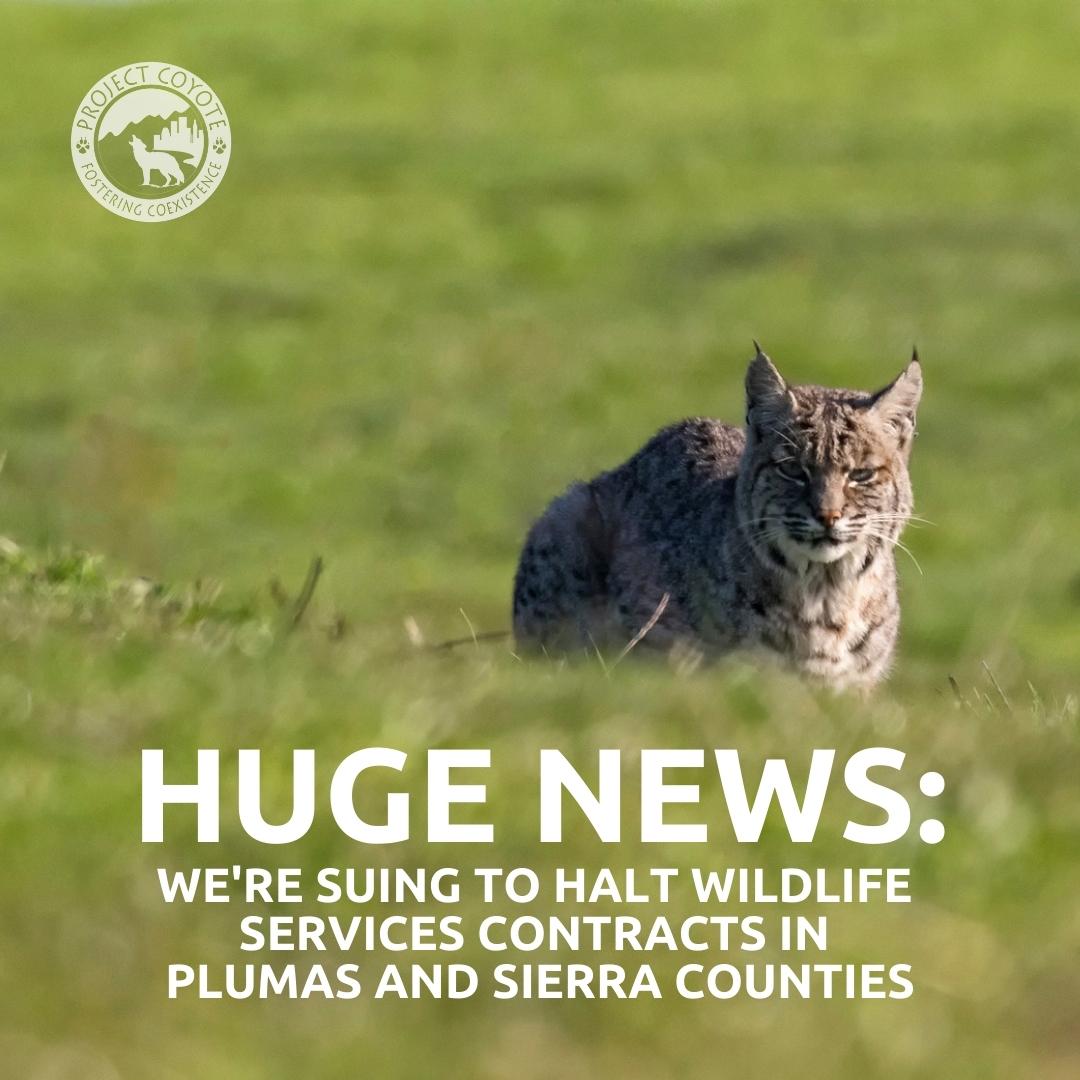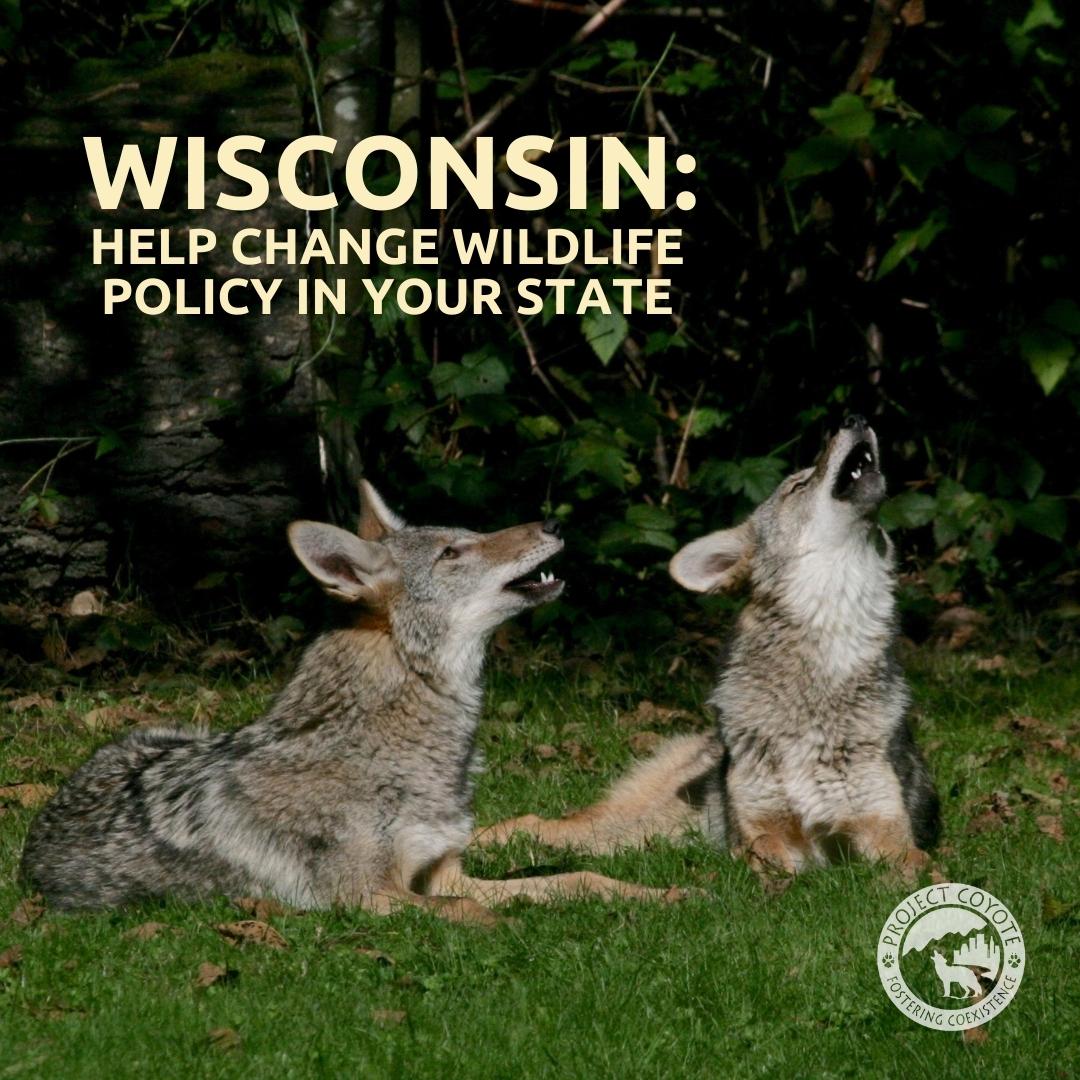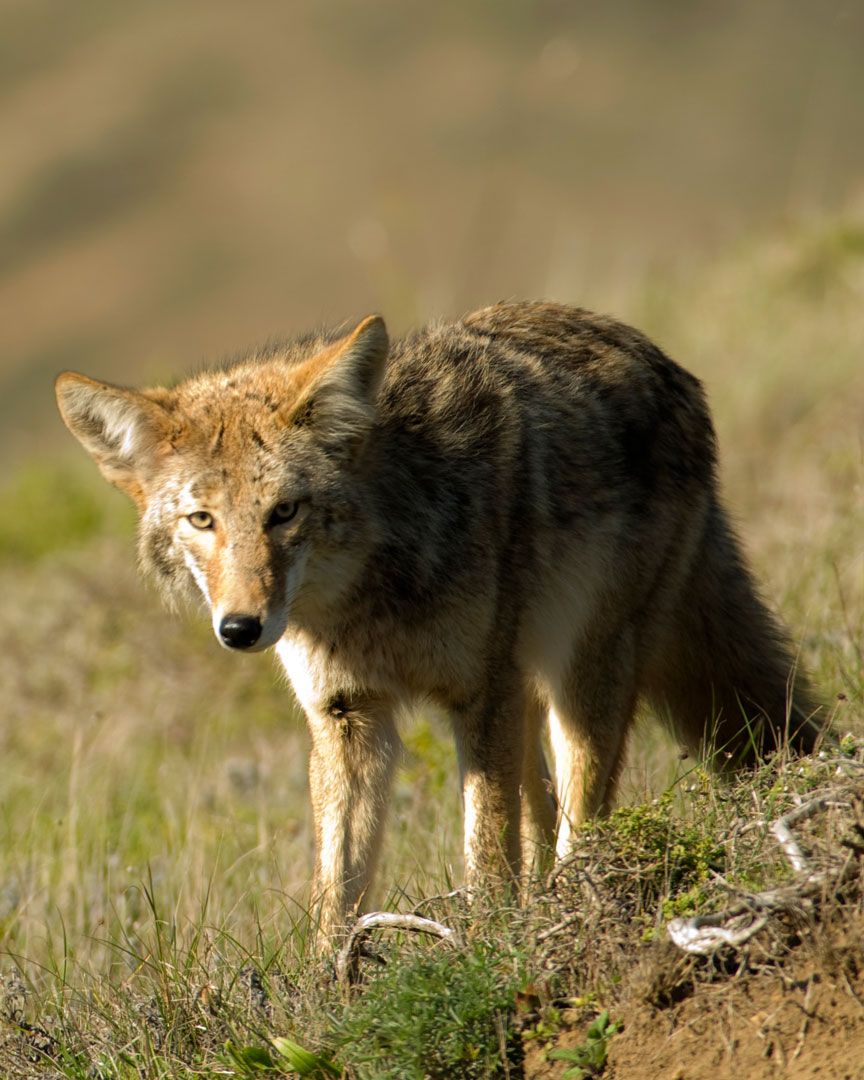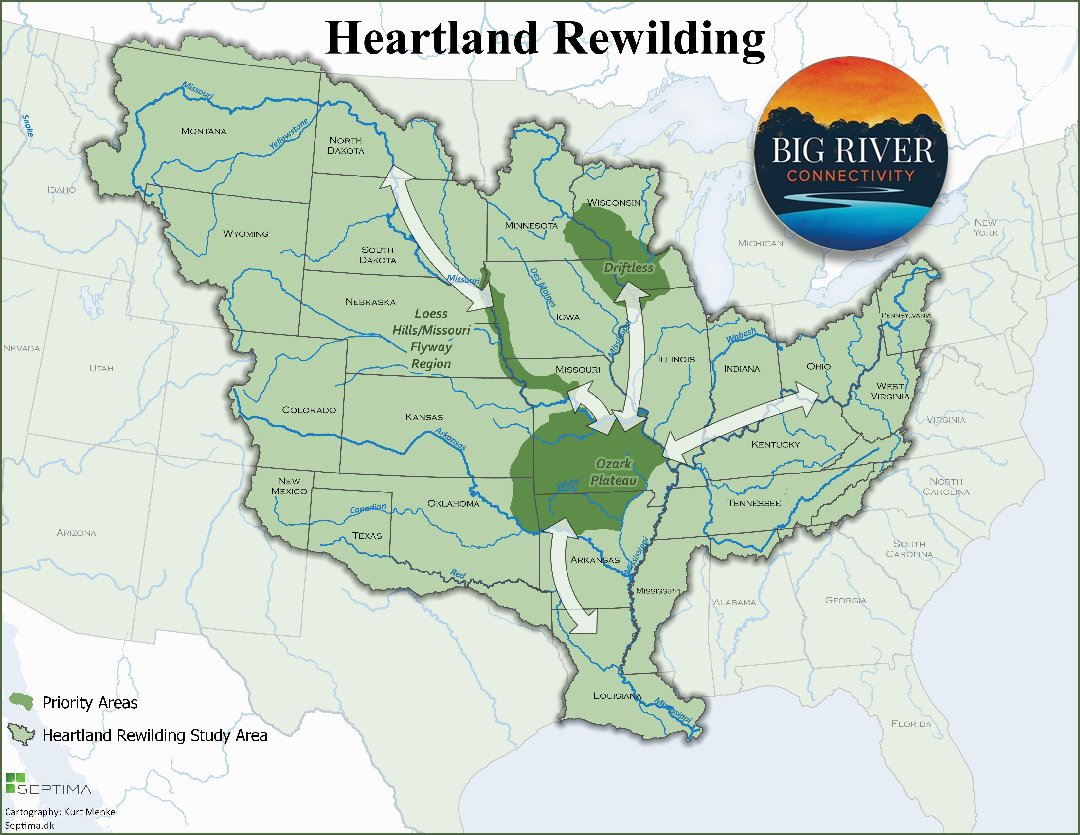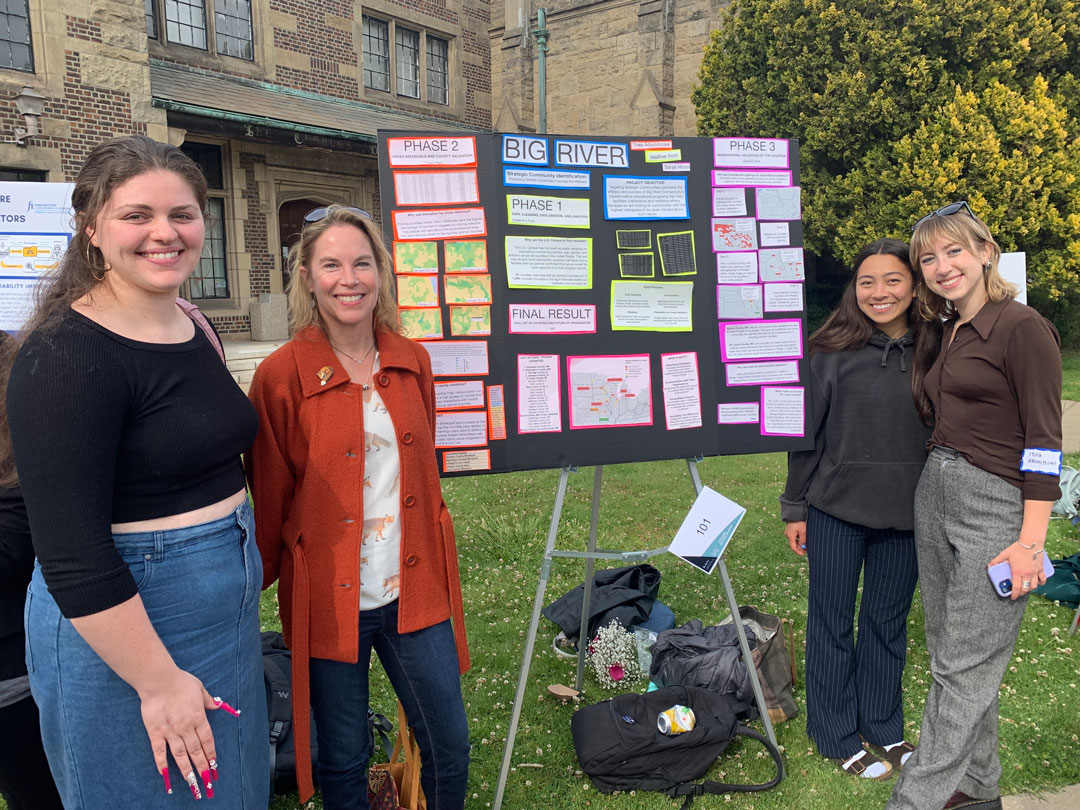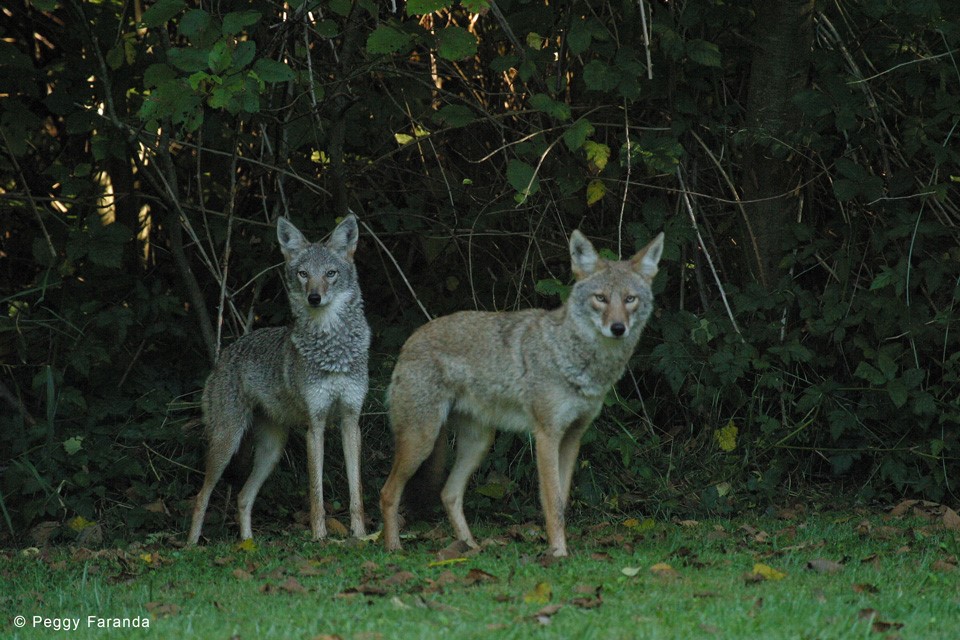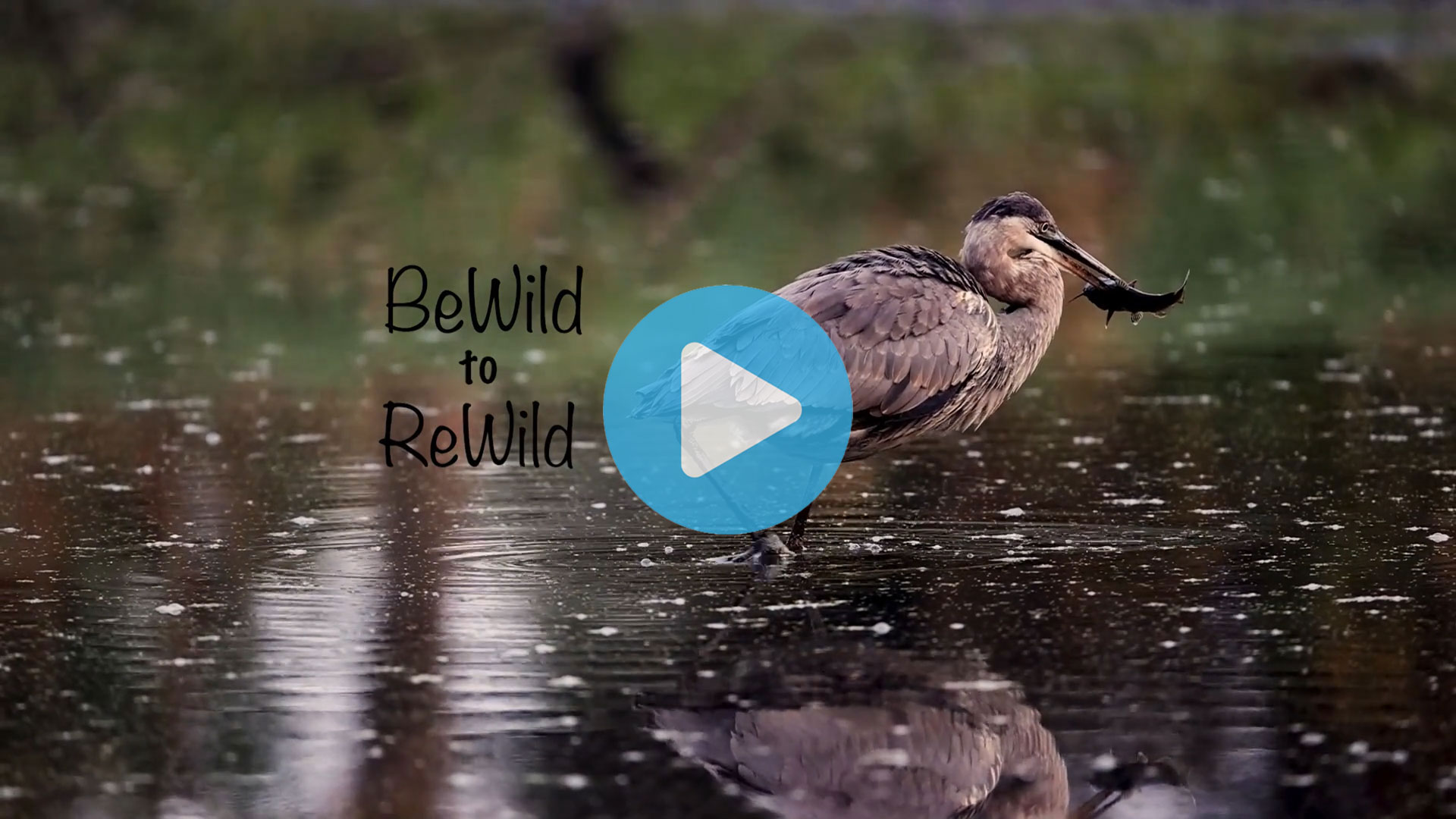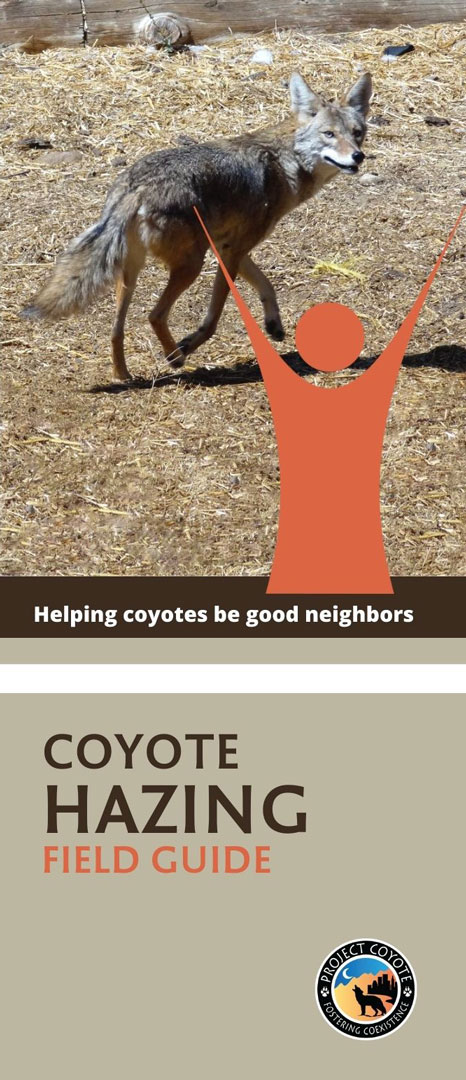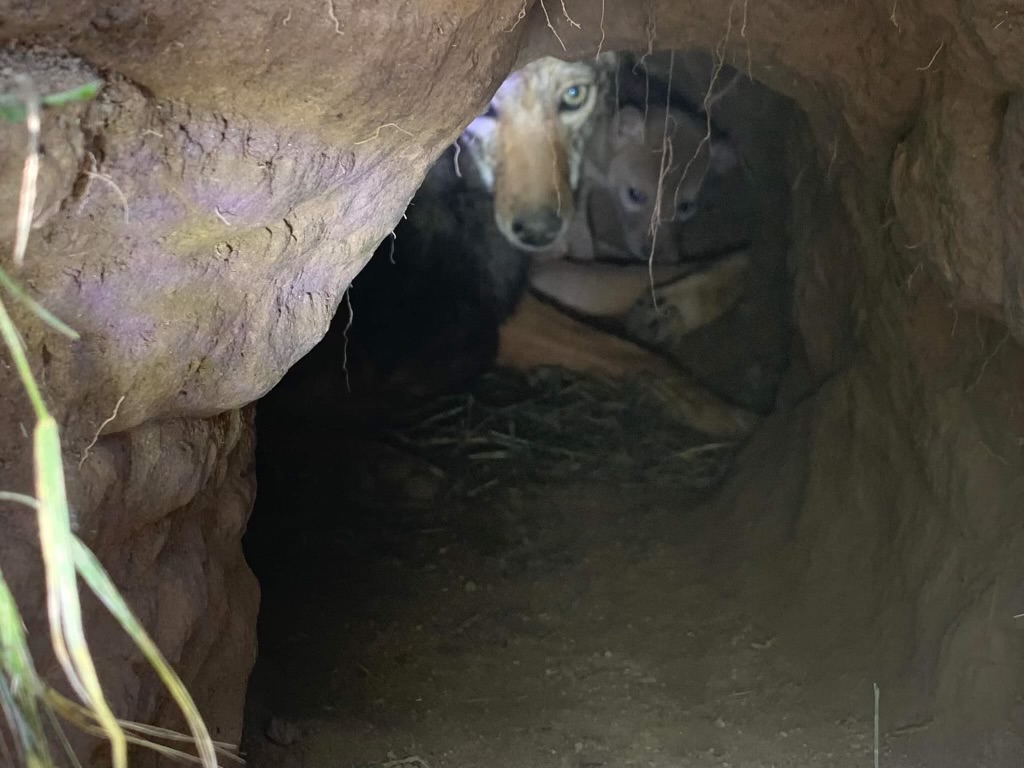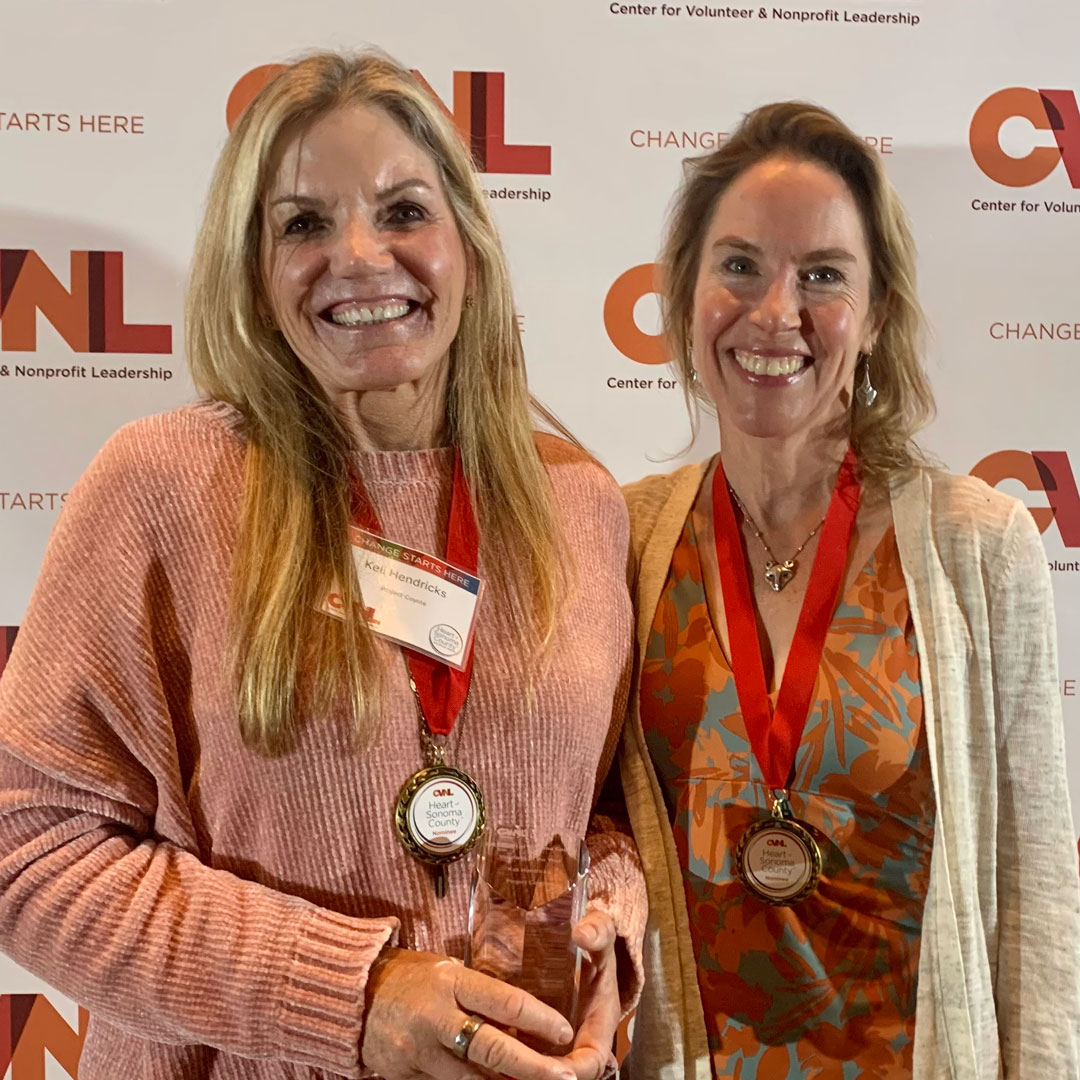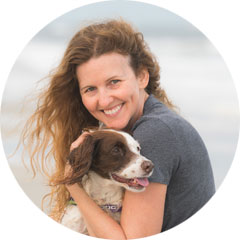JUNE 2022 IN THIS ISSUE:
Never doubt that a small group of thoughtful, committed citizens can change the world; indeed, it’s the only thing that ever has.
~Margaret Mead
Since our inception in 2008, Project Coyote has relied on a cadre of volunteers who give their time and talents to our mission of fostering coexistence between humans and wildlife through education, science and advocacy. Without them we would not have enjoyed so many victories for wildlife. Many of our cherished volunteers have been with our team since the very beginning.
While they all deserve awards and accolades for their tireless and often thankless work towards our mission, it is especially rewarding when their efforts are recognized externally.
In this edition of Coyote Chronicles, I am proud to share recent awards for two of our core volunteers. Keli Hendricks, our Ranching with Wildlife Coordinator, was recently awarded the Heart of Sonoma Volunteer of the Year award by the Center for Volunteer and Nonprofit Leadership. Keli was nominated for this honor by Project Coyote. Additionally, Dave Parsons, a founding Science Advisory Board Member, was recognized with the Environmental Hero Award by One Earth.
Read more about them and their achievements below. Share in our recent victories and accomplishments for wildlife that have only been achieved because of the hard work and dedication of our growing staff and the many volunteers who serve as science advisors, pro bono attorneys, educators and community leaders. They are the heart and soul of our organization and for them I am eternally grateful.
For Community, Carnivores, & Compassionate Coexistence,
Camilla Fox
Founder & Executive Director
Carnivore Conservation & Coexistence ~ Federal/National
As a culmination of our ongoing fight to end wildlife killing contests, raise awareness via our growing coalition of partners and monumental film-making collaboration, U.S. Representative Steve Cohen (D – Tenn.) and 18 of his colleagues introduced legislation to ban killing contests on federal public lands in April. The introduction of H.R. 7398, the Prohibit Wildlife Killing Contests Act of 2022, is an unprecedented opportunity to take our mission to end wildlife killing contests to the national stage. Let’s change the narrative together: if you haven’t already, contact your U.S. Representative to co-sponsor and support this bill today! Then read Kim Frank’s new feature piece “Blood Sport” about killing contests in Earth Island Journal and “How Killing Wildlife Became a Game” in National Geographic.
Project Coyote Science Advisor Dave Parsons received One Earth’s prestigious Environmental Hero Award for his tremendous contributions over his three-decade career in wolf conservation and protection. Learn more about why Dave is so very deserving of this recognition and continue reading below for more of Dave’s recent contributions to this field throughout this edition of Coyote Chronicles.
Camilla Fox, along with Project Coyote Advisory Board Member Philip Tedeschi and Illinois Representative Jane McBride, attended the Brooks Institute 2022 Congress, an event that gathers advocates and scholars from across the animal protection community to discuss effective social change for all animals. Reports, presentations and transcripts from the event will be available soon.
Carnivore Conservation & Coexistence ~ Protect America’s Wolves
In April, Project Coyote launched our #ProtectAmericasWolves grassroots campaign that features weekly targeted actions to raise public awareness over continued wolf killings and increase public pressure on decision-makers to relist the wolves of the Northern Rockies as endangered – before it’s too late. This campaign aims to take collective action leading up to the U.S. Fish and Wildlife Service (USFWS) Northern Rockies relisting decision, which will be published in September. To join the #ProtectAmericasWolves campaign and take collective action, sign up for Project Coyote’s E-team and follow along on social media.
Project Coyote has been working to provide our supporters with updates on all that’s happening with lobos of the Southwest. We provided extensive comments to USFWS’s revised Mexican gray wolf recovery plan and mobilized our supporters to comment, providing talking points on how to implement the best available science to guide species’ recovery. Over 49,000 comments were submitted. The revised plan yet again failed to address the critical threat of human-caused mortality which is responsible for 70% of Mexican wolf deaths. Directly following the close of the comment period for the recovery plan, the USFWS released their draft decision on the new Mexican gray wolf 10(j) management rule, which comes in response to another court order. We also advocated for the protection of the Seco Creek pack, a genetically valuable wolf pack residing in Gila National Forest that is currently under threat. Lastly, we mobilized our supporters to take action in response to an investigative report published in The Intercept which uncovers systemic fraud and corruption by the federal USDA Wildlife Services program. We directed our supporters to place calls to the Inspector General’s office asking for a full investigation of the Wildlife Services offices in New Mexico and Arizona. Stay tuned for more actions as we continue advocating for the lobos of the Southwest.
Carnivore Conservation & Coexistence ~ Reforming Wildlife Services
On Tax Day, Project Coyote released a press statement exposing the $124 million in taxpayer dollars the USDA’s Wildlife Services wastes on slaughtering millions of animals each year. We highlighted the program was responsible for the killing of 1.76 million animals in 2021, all while in the midst of catastrophic biodiversity collapse. Project Coyote is part of a growing national coalition of wildlife protection organizations that are working to push reform of Wildlife Services and press for a shift to non-lethal approaches to livestock-wildlife conflicts. Project Coyote has started a groundswell of pushback against Wildlife Services contracts with local communities in California including in Mendocino, Monterey, Sonoma, Shasta, Siskiyou and most recently Plumas and Sierra counties. We continue to work with Mendocino to develop their new non-lethal coexistence program.
Carnivore Conservation & Coexistence ~ Arizona
We also advocated for Mexican gray wolves by alerting Arizona supporters to oppose H.B. 2181, which liberalizes the killing of lobos. The bill blocks the Arizona Game and Fish Commission from prohibiting a person from killing a wolf if they claim they feel threatened or if their livestock or pets are threatened. The bill is both unnecessary and falls outside of state authority given that these wolves are federally protected under the ESA. Wolves rarely attack humans and people already have the ability to protect themselves, their livestock and property. Management authority lies with federal officials, not state officials. Unfortunately, the Arizona legislature voted to pass the bill as a result of pressure from anti-wolf forces. We continue advocating for lobos by exploring options to counter this terrible legislation and pressing for stricter federal protections everywhere lobos roam.
Carnivore Conservation & Coexistence ~ Washington
Last year, we successfully defeated a proposed and ethically indefensible spring black bear hunt in Washington. This year, bear hunters returned with a petition to the Washington Fish and Wildlife Commission to reinstate and establish a permanent spring black bear hunt. In response to our collective advocacy efforts, we successfully canceled this year’s spring black bear hunt! In March, the Washington Fish and Wildlife Commission voted 5-4 to cancel a spring bear hunt from proceeding. Leading up to the vote, we mobilized our supporters, offered written comments and oral testimony to the Washington Fish and Wildlife Commission in opposition to the hunt. We will continue to advocate for black bears in Washington to ensure this spring hunt does not return in the future.
Carnivore Conservation & Coexistence ~ California
The plight of California’s black bears continues. Despite drought, wildfires and vehicle collisions threatening bears across the state, the California Fish and Game Commission denied a Humane Society of the United States’ petition to enact a moratorium on hunting. We alerted supporters, provided substantial comments and worked in coalition with HSUS and Bear League to support their petition. We will continue this collaboration as we oppose another recent petition to increase available bear tags per hunter and a forthcoming bear management plan.
Last year, the U.S. Department of Agriculture’s Wildlife Services (USDA-WS) wasted $124 million in taxpayer dollars to slaughter over 1.76 million animals. To continue our long-standing campaign to reform the rogue program and save wildlife in northern California, we partnered with Feather River Action! to sue Sierra and Plumas counties over their failure to conduct required environmental review in relation to their USDA-WS contract. More details and information to come about joint lawsuit in the weeks and months to come!
Carnivore Conservation & Coexistence ~ Wisconsin
We partnered with and encouraged Wisconsin animal advocates to get involved in the Wisconsin Conservation Congress by submitting citizen resolutions and voting in the WCC Spring Hearing. Our efforts contributed to more than doubling participation in the WCC Spring Hearing relative to last year. More importantly, voting showed a notable shift toward more ethical and ecological practices. State-level wins included the approval of a resolution for the creation of a regulation process for hunting contests. Many citizen resolutions passed in several counties, such as: banning chocolate bear bait, reducing the hound training season pursuing the black bear, eliminating compensation for hound owners, banning wolf hounding and ending killing contests in WI. If you are a Wisconsin advocate, stay tuned for more information and check out this webinar to find out more about the WCC results and next steps for advocates.
Carnivore Conservation & Coexistence ~ Vermont
Earlier this year the Vermont Senate Committee on Natural Resources and Energy introduced and discussed two new bills, S.201, and S.281 to protect wildlife. S.281 was originally introduced as a ban on the barbaric practice of abusing hounds to chase and kill coyotes (“hounding”). Unfortunately, the bill was watered down and amended in the Senate Committee on Natural Resources and Energy to regulate hounding instead of placing an all-out ban on the practice. S.201 was introduced as a ban of leghold traps and was also subsequently amended in the Senate Committee on Natural Resources and Energy to direct Vermont Fish and Wildlife to create best management practices for trapping. We were disappointed that the Senate Committee on Natural Resources and Energy failed to prohibit these inhumane and unethical practices. We will continue to promote and fight for a ban of trapping and hounding and for the protection of all of Vermont’s wildlife- and thanks to all of our Vermont supporters and volunteers for responding to our action alerts and speaking out for wildlife.
Carnivore Conservation & Coexistence ~ Heartland Rewilding
The need for focused attention on rewilding and coexistence in the Midwest brought three organizations together: Project Coyote, The Rewilding Institute, and The Half-Earth Project. This partnership was collectively known as Big River Connectivity, but is now called Heartland Rewilding, a new collaboration focused on reconnecting, rewilding, and coexisting within the Mississippi River Watershed.
During this academic term, we partnered with students from University of California – Berkeley’s Fung Fellowship program to develop a tool that would contribute to the identification and prioritization of target communities in the Midwest in which to focus our rewilding and coexistence efforts. This data-driven research incorporates demographic, political, environmental and wildlife data, and will optimize the effectiveness of our initiatives’ public education and outreach efforts well into the future. The Berkeley team presented the results of their spatial modeling and prioritization tool in early May both virtually and in-person to PC members. Through their work, the Berkeley team has provided Heartland Rewilding with not only a list of potential communities to work with, but with an initial methodology we can build on to continue optimizing our advocacy.
Project Coyote is working to partner with the City of Des Moines, Iowa to create a proactive Coyote Friendly Communities plan. The goal of this non-lethal wildlife coexistence plan is to provide city officials with a framework for promoting coexistence and resolving any conflict in a manner that is safe for people and wildlife. Such a plan currently has the support of Animal Rescue League of Iowa, the Des Moines Police Department and City Parks, Iowa Department of Natural Resources and other local leaders. Kelly Borgmann, Midwest Coexistence Coordinator, will be presenting the proposal to Des Moines City Council this summer.
Camilla Fox joined some of our rewilding collaborators in a beautiful new film BeWild to ReWild to discuss what it means to rewild our developed landscapes. Please watch and share this inspiring film!
COYOTE FRIENDLY COMMUNITIES
As we enter into summer, coyotes emerge from their dens and become more active. Every spring, we receive increased calls and inquiries related to coyotes, and communities seeking assistance in promoting peaceful coexistence between humans and wildlife. As part of our Coyote Friendly Communities program, Project Coyote continues to expand into new communities across the country. We provided public presentations to communities in Mission Hills, Los Angeles, and Canyon, California with live Q&A sessions. We also provided our science-based resources to communities to raise public awareness about how to peacefully coexist with wildlife. We continue to assist the Lake Highlands community in Dallas, Texas after a tragic coyote attack by providing community advocates with educational resources on coexistence and best practices to inform a coyote management plan.
Our team recently provided the following community events to spread awareness and education on how to better coexist with coyotes.
- March 13 Coyote coexistence presentation by Chris Schadler at the Waterbury Library presentation in Waterbury, Vermont
- May 14 Coyote hazing demonstrations by John Maguranis at the Art, Nature, Nahant festival in Nahant, Massachusetts
- May 21 Coyote coexistence booth with Dan Devries at the Haight Ashbury community event in San Francisco, California
Upcoming events
Keeping it Wild
Project Coyote showed children the magic of coexistence and the importance of wild carnivores for a healthy environment at recent festivals and events!
- April 16 Earth Day at the Oakland Zoo, California
- April 23 Springfield Earth Awareness Fair at the Henson Robinson Zoo, Illinois
- April 24 Children’s Birding and Nature Festival at Point Reyes State Park, California
- June 11 Presentation about living with bobcats with Project Coyote’s Keeping It Wild Youth Education Coordinator Sarah Killingsworth in Marin County, California
- June 11-12 2022 Fairfax Festival and Ecofest in Fairfax, California
Ranching with Wildlife
Sometimes coexistence takes a whole village. When local advocate, Ben Nuckolls, contacted Sierra Nevada Representative Fauna Tomlinson about a hobby farmer adopting pygmy goats only to find a mama coyote denning within the newly erected enclosure, the whole Project Coyote family pitched in to help. While Fauna sent Foxlights (i.e., visual predator deterrents), Dr. Michelle Lute, Ranching with Wildlife Coordinator Keli Hendricks and Program Associate Erin Hauge advised local advocates and the farmer on best practices to keep goats and coyotes safe.
Keli Hendricks was recently appointed to the Sonoma County Fish & Wildlife Commission, a board that grants public funds for protection and preservation of local fish and wildlife. Keli is also a dedicated wildlife rehabilitator and stays busy helping the local community better coexist with wildlife in her role as Project Coyote’s Ranching with Wildlife Coordinator. Keli’s great efforts were also recently recognized with the Heart of Sonoma County Volunteer of the Year Award by the Center for Volunteer and Nonprofit Leadership. Congrats, Keli, and thanks for your unwavering dedication to wildlife!
- You can make a difference for wildlife by serving on a local commission or board. Fauna Tomlinson, our Sierra Nevada Rep, is another team member making a difference for wildlife in her local community. Fauna serves on the Nevada Board of Wildlife Commissioners’ Wildlife Damage Management Committee and has helped stop many aggressive year-round predator eradication programs.
- PC reps Chris Schadler and Don Lipmanson have also served in their local communities. Contact us for ways you can get involved to shape local wildlife policy!
-
Please Welcome the Newest Members of the Project Coyote Team!
As Development Operations Coordinator, Jane works directly with our supporters and our database. Jane has an impressive background in the nonprofit sector, a Masters in Public Administration (with a focus in nonprofit management) from New York University, and has worked for Natural Resources Defense Council and Environmental Defense Fund in fundraising and events roles. She is thrilled to join a smaller team where she can wear many hats and support a mission that resonates deeply with her.
Joining Project Coyote as the new Social Media Assistant, Heather is a storyteller, educator, and content creator who will focus on sharing news and action with our audiences across social media. Formerly a science teacher, Heather has a Masters in Public Health from the University of Southern California and is also working on the Best Friends Animal Society’s social media team.
Project Coyote Webinars
Project Coyote (in collaboration with The Rewilding Institute) is continuing with our informative and engaging series of webinars. If you missed any of the presentations, you can find replays here on our website for easy viewing and sharing.
Project Coyote Team Recent Publications, Press and Presentations
Podcasts, Webinars, Conferences, TV and Radio Shows
Dr. Michelle Lute- Untamed PBS: The Vital Role of Predators
- Animal Legal Defense Fund Virtual Animal Law Symposium 2022
- Webinar: Science & Ethics Agree: Coexistence Must Replace Killing wolves
- Rewilding Earth podcast, Episode 89: Francisco Santiago-Ávila On Rewilding and Coexistence in The Heartland
- Rewilding Earth Podcast, Episode 91: Renee Seacor Advocates for Mexican Wolves to Infinity and Beyond I-40!
- Coast to Coast with George Noory on Wolf Conservation (Feb 20, 2022)
- Co-led wildlife conservation photography webinar with Chien Lee, for Taylor Animal Welfare Society at Taylor University in Malaysia, March 5
- Featured in Sonoma County Parks facebook page, March 30
- Led Keeping It Wild youth education webinar, Immersive EDU in the Solana Beach School District, April 15
- Led “Wildlife Photography Tips and Tricks at Abbotts Lagoon with Sarah Killingsworth” presentation and tabled at the 13th Annual Point Reyes Birding and Nature Festival, April 24
- Presented to Tea, Talk and Take Action group in Marin County, CA on June 11
Camilla Fox and Dr. Michelle Lute
- Kim Frank Blood Sport, Earth Island Journal
- Rene Ebersole How killing wildlife in the United States became a game, National Geographic
- USDA Whistleblower Reveals Fraudulent Wolf Kills, The Intercept
Dave Parsons and Dr. Michelle Lute
- How killing wildlife in the United States became a game, National Geographic
- Wolves and Farmers Don’t Have to Be Enemies, Santa Fe New Mexican
Dr. Francisco J. Santiago-Ávila and co-authors
- Science and Ethics Agree: Coexistence Must Replace Killing Wolves (Part 1 and Part 2), PAN Works
- Castelló PP, Santiago-Ávila FJ. Conservation After Sovereignty: Deconstructing Australian Policies against Horses with a Plea and Proposal. Hypatia. 2022;37(1):136–63.
- Study showcases need for improved data regarding Wisconsin’s wolf hunt
- Featured in Wolf conflicts grew last year as bipartisan proposal seeks to delist wolves
- with Fred Koontz, Conserving — not killing — wildlife should drive Wisconsin’s natural resources strategy
- Escudilla, Aldo Leopold, and Restoring Grizzlies to the Southwest, The Rewilding Institute
Dr. Jeremy T Bruskotter, Dr. Michael Paul Nelson, Dr. John Andrew Vucetich
- Bruskotter, J.T. Nelson, M.P., Peterson, M.N., Peterson, T.R., Serfass, T.L., Sullivan, L. and J.A. Vucetich. (2022). Beyond Game Management: Toward a More Inclusive Ethic for Wildlife Conservation. School of Environment and Natural Resources, The Ohio State University.
- Hounding Wildlife, In Depth NH and Coyote Hounding is Simple Animal Abuse, Sentinel Source
- The subtle, slippery slopes of wolf reintroduction, Daily Camera
- Human Ancestors Were Nearly All Vegetarians, Scientific American
- Idyllwild trapper draws scrutiny for huge number of raccoon, coyote catches, The Orange County Register
Join our E-TEAM
Get periodic e-news, action alerts, and join our growing network of educators, scientists, predator friendly ranchers and citizen leaders who are helping people and wildlife coexist in our communities.
Join a growing community of educated and empowered citizens by expressing your commitment to compassionate conservation with a financial investment.
You can DONATE, become a SPONSOR or leave a LEGACY GIFT.

